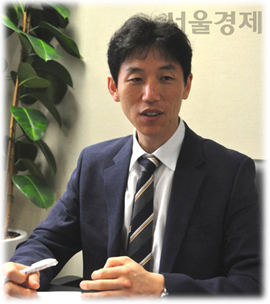| 일 | 월 | 화 | 수 | 목 | 금 | 토 |
|---|---|---|---|---|---|---|
| 1 | 2 | 3 | ||||
| 4 | 5 | 6 | 7 | 8 | 9 | 10 |
| 11 | 12 | 13 | 14 | 15 | 16 | 17 |
| 18 | 19 | 20 | 21 | 22 | 23 | 24 |
| 25 | 26 | 27 | 28 | 29 | 30 | 31 |
- political phenomena
- new political science
- the 3rd Law of politics
- Samjae Capacity
- Mathematical Model of politics
- politics of Inner Circle
- mechanism of politics
- Political power
- Regime Change
- politics and war
- Task Delegates of the Ruler: Inner Circle
- Canonical Politics
- Orderliness of Choice
- Value Systems
- Order of Choice
- power and organization
- Political Regime
- Political Change
- politics
- the 2nd law
- 1st Law of politics
- Mathematical Model of political science
- Samjae Capacities
- survival process theory
- Cohesion Force
- Political Regimes
- Power
- Operation of the 2nd Law
- political organization
- Differences in Individual Abilities and Tendencies
- Today
- Total
New Political Science
a. ㉢ Cultural Activities 본문
㉢ Cultural Activities
Thirdly, cultural activity refers to the conceptual activities that the majority of political groups enjoy and share in the short term. Cultural activity encompasses arts, rituals, social atmosphere, and short-term values that can be called 'trends.' In the early 1770s, British pub culture contributed to the development of a spirit of resistance against the government, directly influencing the American War of Independence, while in Russia during the 1960s Brezhnev era, dissatisfaction with the political system was often mentioned through subtle everyday criticism in the form of anecdotes. This is a representative example of political cultural activity. The activist songs popular in the South Korean movement in the 1980s also fall into this category.
Trends and consumption patterns, seemingly trivial cultural activities, may often appear unrelated to politics, but they too play a political role. Of particular note are the short-term and fluid values shared by the majority. The novel Uncle Tom's Cabin, published in 1852, "helped inflame sectional tensions to a new level of passion" in the regional conflicts between the North and the South and ultimately led to the significant political outcome of abolishing slavery in the United States.
The cultural form of a military life is an important factor in fostering unity among soldiers, and the mobilization of the masses through Hitler's provocative public speeches also belongs to cultural activities as a kind of trend. Hitler's speeches were persuasive but not logical, so they should not be considered a theoretical system. Therefore, unlike other ideological capacities that exert a weak but long-term influence, Hitler's ideological capacity rapidly weakened its political influence after his death, and almost no political influence was exerted after 50 years. In this way, cultural activities are elements of ideological capacity that exert their influence on a micro-level scale.
If one can align such cultural activities with their political goals, they can further enhance their political power. The practical method is to participate in these cultural activities, produce and transform them, and sometimes suppress them. A representative example is politicians in 21st-century South Korean elections adapting existing songs or creating new songs and dances to promote themselves. As mentioned earlier, the rise and fall of sales of sneakers, where gangs changed the name of the shoes to "Brother Killer" without any particular reason, is a random act, but similar activities can be carried out with political intentions. Such cultural activities stimulate psychological factors such as style and elegance in the structure and acquisition means of ideological capacity.
'Mechanism of Politics' 카테고리의 다른 글
| b. ㉡ Interaction Methods of Ideological Capacity (0) | 2023.12.18 |
|---|---|
| b. ㉠ Political Utilization of Value Systems (0) | 2023.12.18 |
| a. ㉡ Theoretical System (0) | 2023.12.18 |
| a. ㉠ Fundamental Beliefs (0) | 2023.12.18 |
| a. Social Structure of Value Systems (0) | 2023.12.18 |


